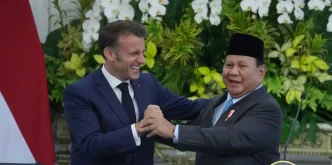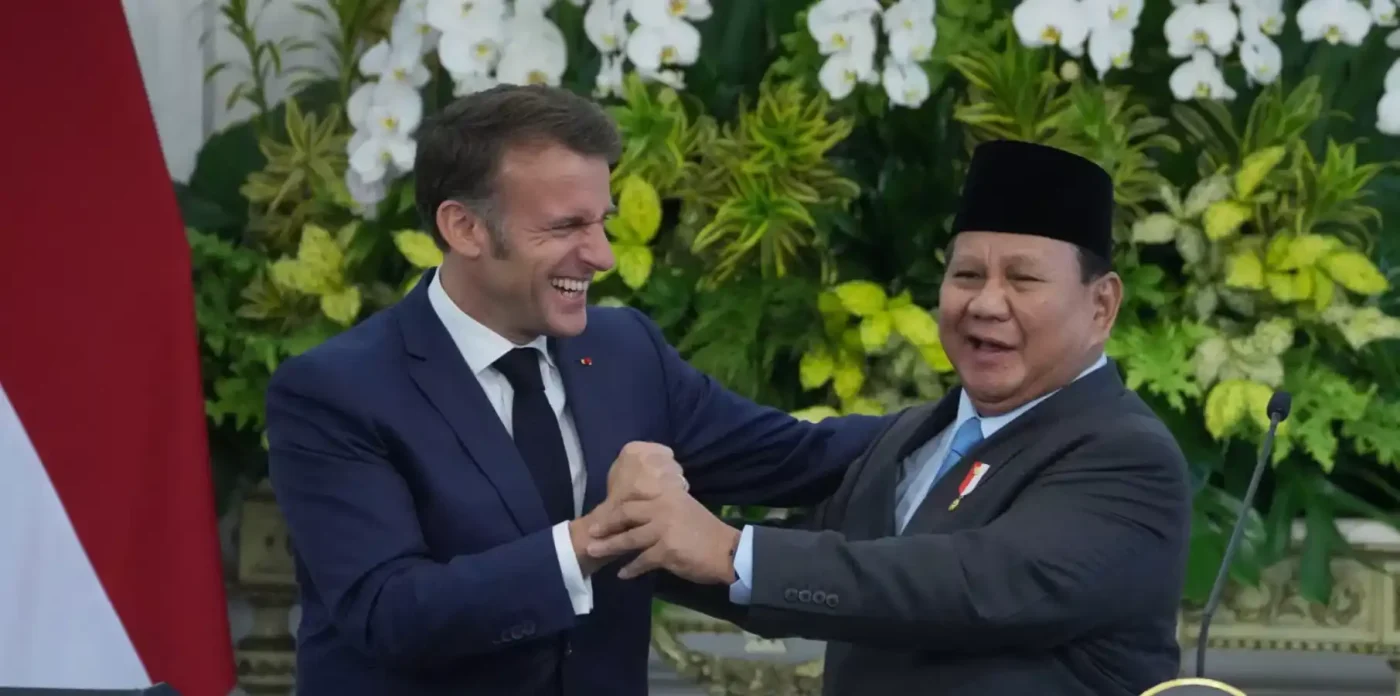French President Emmanuel Macron has embarked on a significant week-long tour of Southeast Asia, a region increasingly central to global geopolitical dynamics. Starting in Vietnam on May 25, moving to Indonesia on May 28, and delivering a keynote address at the Shangri-La Dialogue in Singapore on May 30, Macron’s itinerary underscores France’s ambition to position itself as a key player in the Indo-Pacific. This tour, marked by high-profile engagements and substantial economic agreements, reflects not only Macron’s personal commitment to foreign policy but also the unique powers bestowed upon French presidents under the country’s constitution.
A Strategic Push in the Indo-Pacific
Macron’s Southeast Asia tour comes at a time when the Indo-Pacific region is a focal point of global competition, with the United States and China vying for influence. French officials accompanying the president have emphasized to local media that France, and by extension Europe, offers a distinct partnership model—one that is reliable and understanding, without the geopolitical baggage associated with Washington or Beijing. This narrative of a “middle road” approach is not new; it echoes a long-standing French foreign policy doctrine dating back to General Charles de Gaulle, who established the Fifth Republic in 1958. As Reuters reported, citing French ministerial briefings, this approach promises “no strings attached” partnerships.
However, the challenge for Macron lies in translating these historical slogans into tangible, practical outcomes. His tour appears to have made significant strides in this regard, particularly through economic and defense agreements that signal France’s intent to deepen ties with key regional players. In Vietnam, Macron oversaw the signing of contracts reportedly worth €9 billion (US$9.5 billion), including deals for Airbus commercial jets and potential future collaborations in nuclear cooperation and infrastructure. While the exact value of these contracts may be inflated—Airbus is a multinational entity, not exclusively French—the agreements nonetheless mark a notable achievement for French diplomacy in a country where its economic presence has been limited despite historical ties.
Vietnam: Reviving Historical Bonds with Strategic Intent
Vietnam, a nation with deep historical connections to France due to its colonial past, has not hosted a French president in nearly a decade. Macron’s visit on May 25 thus carried symbolic weight, reinforcing France’s commitment to rekindling ties. The elevation of France to a “first-level strategic partner” in Vietnam’s foreign policy hierarchy—on par with historical allies like China, Russia, and India—underscores the significance of this renewed engagement. This status comes at a critical juncture for Vietnam, which faces pressure from US trade tariffs of up to 46 percent and navigates complex relations with China, whose President Xi Jinping visited Hanoi in April.
The economic agreements signed during Macron’s visit are a cornerstone of this partnership. Beyond the Airbus deals, discussions on nuclear cooperation and railway projects suggest a long-term vision for collaboration. These initiatives could provide Vietnam with much-needed infrastructure development while offering French companies a foothold in a rapidly growing economy. However, questions remain about the feasibility of these projects, given the complexities of international financing and Vietnam’s stringent regulatory environment. If successful, these agreements could serve as a model for France’s engagement with other Southeast Asian nations.
Indonesia: Defense Ties and Diplomatic Momentum
In Indonesia, Macron’s visit on May 28 built on existing defense partnerships, coinciding with the 75th anniversary of diplomatic relations between the two countries. France has secured a deal for 42 Rafale fighter jets, valued at US$8.1 billion, though delivery is yet to commence. Negotiations for two Scorpene-class submarines are also underway, with a framework agreement in place despite challenges over Indonesia’s demand for offsets—requiring French manufacturers to share at least a third of the contract value with local firms. The reaffirmation of France as a major military supplier to Indonesia, particularly amid scrutiny over the Rafale jets’ performance in regional conflicts, marks a significant win for Macron’s administration.
Beyond defense, Macron leveraged his visit to rally support for a French-Saudi co-chaired international summit on the Palestinian question, scheduled for late June in New York. Indonesian President Prabowo Subianto, whom Macron affectionately referred to as a “brother,” reiterated a stance he first articulated in Turkey on April 12, stating that Indonesia would recognize Israel and establish diplomatic relations once Israel recognizes Palestine. While this proposal remains largely symbolic—Israel shows no inclination to recognize an independent Palestinian state—it bolsters Macron’s narrative of France as a mediator in global conflicts, capable of bridging divides between diverse nations.
Singapore: A Platform for Global Discourse
Macron’s final stop in Singapore on May 30 for the Shangri-La Dialogue, a premier security forum in Asia, provided an opportunity to articulate France’s broader Indo-Pacific strategy. Addressing an audience of regional leaders, defense officials, and international media, Macron likely emphasized France’s commitment to multilateralism and its role as a balancing force in a region fraught with superpower rivalry. His presence at the dialogue, following visits to Vietnam and Indonesia, reinforces France’s determination to be seen as a serious stakeholder in Asian security and economic affairs.
This leg of the tour also facilitated discussions on defense and technology cooperation, with agreements expected to be exchanged on areas such as artificial intelligence. These engagements highlight France’s multifaceted approach to the region, combining traditional security concerns with emerging technological frontiers. For Singapore, a global hub for innovation and finance, partnerships with France could yield mutual benefits, though the specifics of these agreements remain to be seen.
The Domestic Context: Unconstrained Presidential Power
Macron’s ability to dedicate an entire week to international diplomacy, a rarity among Western leaders, stems from the unique structure of the French political system. Under the Constitution of the Fifth Republic, foreign and security policies are considered the exclusive domain of the president, often referred to as the “chasse gardée” or “private hunting ground” of the Élysée Palace. French foreign and defense ministers primarily execute presidential directives, with little room for independent initiative. This concentration of power allows Macron to pursue an ambitious foreign policy agenda unaffected by domestic political turmoil, such as the current government’s lack of a parliamentary majority or the looming possibility of a general election in 2025.
In this regard, Macron’s authority mirrors that of leaders like US President Donald Trump or Chinese President Xi Jinping, rather than his European counterparts, who are often constrained by coalition governments or parliamentary oversight. Coupled with his personal passion for international affairs and his willingness to engage extensively with media and academics on these topics, Macron has become a prominent figure on the global stage. However, this approach has not been without missteps. His refusal to heed US intelligence warnings about Russia’s invasion of Ukraine in 2022 and his controversial remarks in 2023 about Europe not being a “follower” of US policy on Taiwan have drawn criticism, though he has since moderated his stance on these issues.
Challenges and Criticisms
Despite the apparent successes of Macron’s Southeast Asia tour, challenges persist. Critics argue that Macron often overstates France’s global influence, projecting an image of power that exceeds the country’s actual capabilities. This perception is particularly pronounced in Europe, where many leaders are preoccupied with domestic crises and view France’s international ambitions with skepticism. Moreover, Macron’s contrarian streak—his tendency to challenge conventional wisdom—has occasionally led to diplomatic blunders, as evidenced by his earlier misjudgments on Russia and Taiwan.
In Southeast Asia, while the economic and defense agreements are promising, their long-term impact remains uncertain. Vietnam’s complex geopolitical balancing act between major powers could limit the depth of its partnership with France, while Indonesia’s insistence on offsets in defense contracts may delay or complicate deliveries. Additionally, France’s colonial history in the region, particularly in Vietnam, necessitates a delicate approach to avoid perceptions of neocolonialism—a concern that Macron’s administration appears to be navigating with care through cultural and economic engagement.
A Forward-Looking Vision
As Emmanuel Macron returns to Paris, his Southeast Asia tour stands as a testament to France’s enduring commitment to global engagement. The agreements signed in Vietnam and Indonesia, coupled with his strategic messaging in Singapore, signal a nuanced approach to the Indo-Pacific—one that seeks to balance economic interests with security concerns and diplomatic mediation. Yet, the true measure of this tour’s success will lie in the implementation of these agreements and the sustained momentum of France’s regional partnerships. For now, Macron has reaffirmed his position as one of Europe’s most assertive voices on the world stage, raising the question of whether France can indeed carve out a distinctive role amid the competing influences of global superpowers.
















